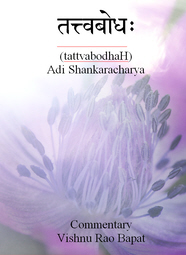Q: Please correct my logic below:
- The ‘negating’ (neti, neti) is actually done by the not-Self (intellect, jIva).
- The things negated are not-Self (body, senses, mind/intellect, jIva itself?)
- The witness cannot be negated because it precedes the objects of negation and the act of negation.
- The witness itself cannot negate but it is because of it that misidentification and negation are possible.
- The knowledge that ‘I am That which cannot be negated’ is in the intellect, which is not-Self, and therefore unreal.
- Once that knowledge takes place, then there is no further thoughts such as ‘I am an individual, so and so, this/that’. And I know that I never was.
- Although the knowledge is in the intellect, it is as if the Self regains knowledge of itself. This individual ‘being’ just became sentient due to my reflection in it?
- It is ‘me’ that is reflected in all apparent individuals?
.
A (Dennis): That is mostly correct. Just a couple of points. The ‘witness’ also has to be negated intellectually, since the act of witnessing has to take place through the body-mind-intellect, which is not who you really are. And the Self-knowledge also takes place in the intellect – it is the jIva who gains Self-knowledge. ‘Self-knowledge’ doesn’t apply to the Self, which is never anything other than the Self. And it does not ‘know’ this in the sense that this word implies – to ‘know’ something requires seeming duality and an intellect.



